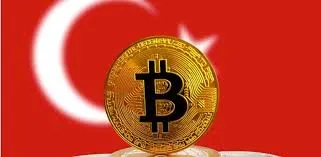Most crises faced by the companies occur on the internet platforms today. The crises, which are called as “digital crises” generally spread from social platforms, digital media, blogs, and elsewhere and have a critical impact on the companies’ brands, reputation and even on business operations.
Such crises lead to discussions regarding the legal rights of the companies and the balance between rights of freedom of speech of consumers under Turkish Law.
Sources and the causes of the digital crisis
In the digital age, in line with the industrial and marketing developments, companies have adopted the new technologies and modern consumer behaviors have also evolved. In today’s world, consumers tend to evaluate products on web sites, make positive or negative comments about the goods or services of the companies on social media platforms which directly affects another consumers’ behavior. Especially, on social media, ideas, opinions or rumors can spread at the speed of light. As a result, some of the worst social media crisis may begin with a consumer clicking on “send” button resulting damages to brand reputation, decrease in sales volumes even if the consumer’s comment is not “true”. Thus, companies have a lot at stake and arguably in a vulnerable position.
On the other side, there is a fundamental constitutional right to be protected. Article 26 of Turkish Constitution sets the standards of the freedom of speech. Accordingly, every human being has right to express their opinion anywhere verbally or written. Therefore, making any negative comment on social media does not necessarily mean a violation of the law even if affecting companies in a negative way.
Consequences of Being a Legal Entity in Line With Law of Damages
Legal entity and its rights have been regulated in article 47 and the following articles of the Turkish Civil Code numbered 4721 and dated 01.01.2002 (“TCC”). Legal entities can be briefly defined as an association, corporation or partnership having legal standing by means of law. A legal entity has the legal capacity to enter into agreements or contracts, to sue and to be sued, and to be held responsible for its actions. As a result, legal entities have the capacity to have rights and to act like a natural person. Herein, we should discuss whether a company has right to claim for its pecuniary or non- pecuniary damages resulting from negative contents about themselves on the internet.
The Limits of the Claiming Pecuniary and Non-Pecuniary Damages of the Legal Entities
Starting with the pecuniary compensation, the legal entity can claim the pecuniary damage if the incorrect information on the digital platforms lead to financial losses of the legal entity pursuant to the law of torts provisions of the Turkish Code of Obligations numbered 6098 and dated 04.02.2011 (“TCO”).
In terms of the non- pecuniary damages, there are some characteristics of legal entities which can be violated except the characteristics which only belong to the individuals pursuant to article 48 of the TCC. Besides, protection of legal entities’ personality and reputation is regulated by the article 24 of TCC and Article 49 of Turkish Commercial Code numbered 6202 dated 01.07.2012 (“Commercial Code”). In case the individuals claim non-pecuniary damage, there should be mental anguish. However, the precedents state that the legal entities may claim non-pecuniary damage for their losses without the existence of this condition. Because of the legal entities’ nature, the mental anguish condition cannot exist when personal right of the legal entities is violated. Therefore, it has been generally accepted that the legal entities can claim non-pecuniary damage when any violation exists without existence of mental anguish condition.
As a result, although legal entities cannot claim any non-pecuniary damage for violation of personal rights such as physical integrity, private life or right to life which only belong to natural persons, they can claim non-pecuniary damage for violation of their personal rights including respectability, business reputation or trade name.
The Conditions of the Claiming Non-Pecuniary Damages within the Scope of the Law of Torts
Article 49 and the following articles of the TCO mainly regulates the principles of tort law in Turkey. Accordingly, the damages arise from the torts should be compensated by the person acted unlawfully. Pursuant to article 49 and the following articles, there should be following conditions for claiming pecuniary and/or non-pecuniary damages:
– Unlawful act
– Fault
– Damage
– Causation between unlawful act and damage
In consideration of foregoing, the unlawful act is the prerequisite to claim non-pecuniary damage. Thus, the content lead to a digital crisis should be false, abusive or denigrative for the legal entity to claim damage. Besides, there should be financial or physical damage to the person who suffers from the unlawful act of the person who acts by fault. At this point, the causation between unlawful acts and damage is playing an important role to claim damage. In other words, the damage of the legal entity such as profit decrease, the decline in income or loss of reputation should directly or indirectly arise from the negative content on the internet.
Claiming Pecuniary and Non-Pecuniary Damages in the Scope of the Competition Law
The non-pecuniary damage is regulated in article 56 of TCO. Besides, article 57 states that the person who suffered economically from the spread and announcement of wrongful information about himself and who loses consumers because of these actions that are not in good faith, can request from the relevant court to prevent these actions and to rule indemnification of the damages. This also relates to provisions related to competition law in the Commercial Code.
Companies’ Other Legal Remedies
The articles 8A, 9 and 9A of the “Regulation of Publications on the Internet and Suppression of Crimes Committed by means of such Publication” numbered 5651 dated 04.05.2007 have regulated to block of the contents which violate the personal right on the internet. Accordingly, to block the contents, which violate personal rights, the following conditions should exist:
-The violation of personal rights mentioned in Article 8A, 9 and 9A such as personal rights of the legal entity or natural person including name, trade name, reputation, respectability and honor.
– The violation of personal rights, which is material and egregious.
– The violation of personal rights, which conflicts with public interests.
Accordingly, unless the hosting providers, including social media, blogs, and websites do not remove the abusive contents over the legal entities’ notices, the legal entities may apply the Judge of Peace in Criminal Matters to claim injunction to block access to the abusive and denigrative content. In accordance with the law numbered 5651, relevant court should decide on the matter in 24 hours. After this decision held by the judge, the injunction is automatically sent to the Union of Access Providers. If the judge grants the injunction it would only apply to the internet users in Turkey. As a result, such blocked content as a result of the injunction may still be available for the web users from all around the world except Turkey. To conclude, as the rapid increase of digital crises spreads over, Turkish legislation offers a much more comparative and discretionary legal framework for those suffer such crisis.
Author: Berfu Öztürk



